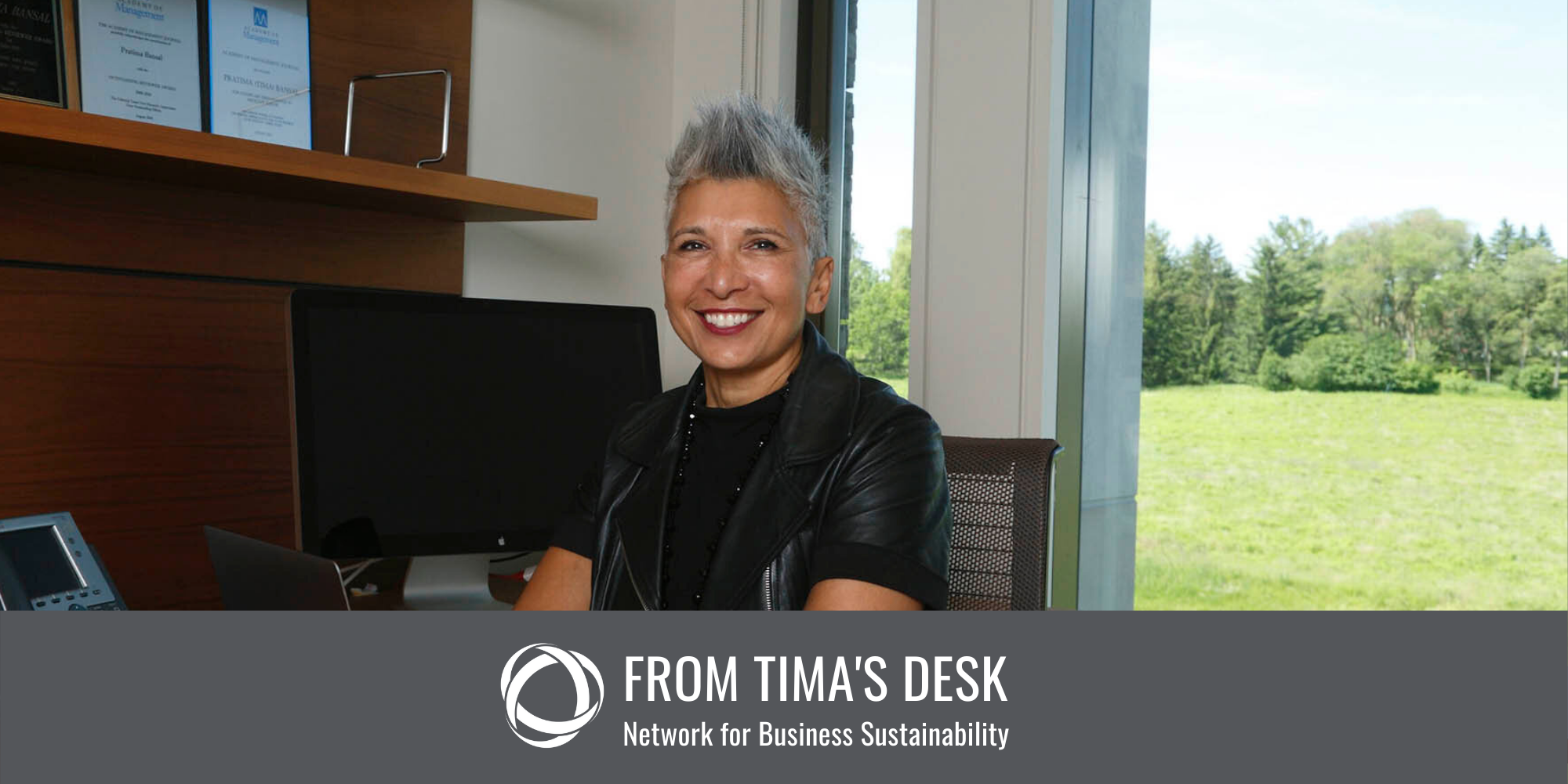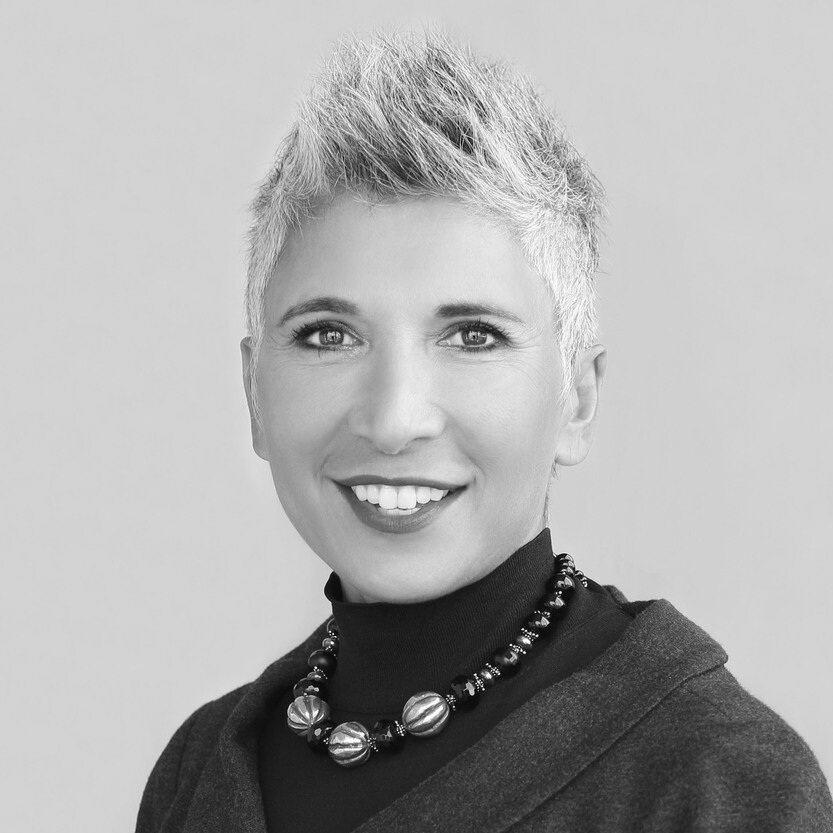As governments fail to speak up on sustainability, new voices are filling the void.
Dr. Tima Bansal is Founder of the Network for Business Sustainability.
After a summer break, I’m excited to return to writing ‘from my desk.’ I am feeling refreshed and more optimistic than I have sometimes been.
The reason for my optimism, you ask? It is hard to be hopeful, with the Brazilian government allowing fires to burn in the Amazon, the US warring on trade with seemingly everyone, and several governments fueling rather than fighting racism.
But, there are some non-governmental actors starting to take meaningful action. The examples below may seem small or weak, but they come from those who have previously been quiet. Soft voices often precede louder ones, and these give me hope.
1. Corporations are speaking about purpose beyond profits
On August 19, 181 CEOs comprising the Business Roundtable committed their companies to benefit all stakeholders, not just shareholders. These CEOs represent some of America’s largest companies, including Apple, Amazon, Exxon and Walmart. People received their announcement with both enthusiasm and skepticism.
Judith Samuelson of the Aspen Institute, a strong critic of shareholder-only capitalism, wrote that “the new language represents a much-needed modernization” from the “voice of Corporate America.” Business journalist Andrew Ross Sorkin praises the effort and writes that “the fight for corporate identity is just beginning.”
I do not expect that every CEO who signed the press release will shift the direction of their corporation, but I do believe the press release created shock waves. There are more people than I ever recall talking about the purpose of a corporation. There are strong forces on those corporate tectonic plates. In January 2019, BlackRock CEO Larry Fink’s letter on Purpose & Profit echoed in businesses and business schools worldwide. The Business Roundtable announcement increases the pressure.
2. Traditional media is actively taking a stand on the climate crisis
Journalists are trained to be objective and provide both sides of an argument. That approach can lead them to amplify positions unsupported by science, including denying climate change.
This summer, some leading newspapers called out fake news on climate change. The Canadian Broadcasting Corporation has increased coverage and committed to “providing more facts about what is happening and more coverage of possible solutions.”
Similarly, the UK-based Guardian updated its style guide in May to use terms that more accurately represent what’s happening to the climate. Instead of “climate change,” the newspaper will now use “climate emergency, crisis or breakdown.” Instead of “global warming,” they will use “global heating.” They’ve even added the global carbon dioxide level to the Guardian’s daily weather pages.
3. Universities are asking staff and faculty to curb travel-related carbon emissions
Universities have long been focused on campus buildings and waste, but now they are extending their reach, asking faculty members and staff to rethink their travel-related emissions.
The work of most academics is international. The magnitude of our impact became very poignant to me, when I attended my annual conference organized by the Academy of Management. Dr. Sylvia Grewatsch and her Greening Team calculated the carbon cost of just 400 people attending this year’s event in Boston. They said to compensate for the cost of our carbon footprint would require 16,000 trees to be planted for 10 years. And that was only a very small part of the picture. The total number of people attending the conference was not just 400 people, but 18,000!
European universities often require faculty members to take a lower-emission trains instead of flying, for reasonable distances. Dr. Elke Schüßler told me about this trend and describes the change in a blog. I was most impressed by faculty members at Freie Universität Berlin, who will take the train for trips of up to 1000 km.
I have tried to be careful about my own greenhouse gas emissions. I accept talks that require long-haul flights only when I can bundle them with other commitments. I am also experimenting with virtual technologies for academic meetings such as our Innovating for Sustainability Salon. This virtual event creates ongoing dialogue and has attracted people from around the world who couldn’t afford to travel. Another approach is regional events: my colleague, Dr. Diane-Laure Arjaliès hosts a conference directed primarily at a South-West Ontario audience, and posts the speeches on the web. As the world globalizes, I think there is so much value in building local communities of knowledge. Finally, I recently gave a talk as a hologram — for a Sustainable Finance conference at Imperial College in London UK. The technology still has a long way to go, but I can now see how we may be able to attend meetings through virtual reality.
Why this? Why now?
I find it encouraging that corporations, traditional media and universities are finally moving. These institutions so often serve to protect the status quo. The actions I described are seemingly small, but they I believe reflect greater currents underneath. Changing culture is hard, especially when there is such a dominant focus on profits and efficiencies.
So, why this? Why now? I think it is because of the very visible absence of the one institution expected to protect society: government. Governments are either distracted by domestic governance challenges or focused on advancing short-term personal or economic wealth at the cost of long-term societal well-being. So other institutional actors are stepping up.
I wish more (all!) governments would do what they were tasked to do: to assure the well-being of future generations. But, I am reassured that when governments fail, other institutional actors will find their inner voice.
And, by all of these voices filling the void, their message may just be heard.
Continuing the conversation
I would appreciate hearing your reaction to the ongoing question of ‘what is business sustainability’. Please feel free to message me (@TimaBansal) or the NBS community (@NBSnet) privately or publicly.
More From Tima’s Desk
Dr. Tima Bansal, NBS’s Founder, regularly shares her observations about business sustainability. Click the button below to see the full series.




Add a Comment
This site uses User Verification plugin to reduce spam. See how your comment data is processed.This site uses User Verification plugin to reduce spam. See how your comment data is processed.